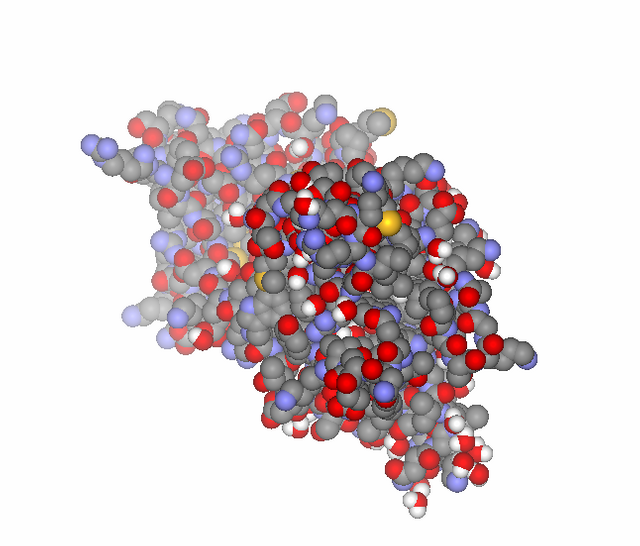The thinking mind, its monsters and allies; BDNF—Part three
Hello, everyone!
In this third, last part of the BDNF article i started i am going to talk about the factors that promote the expression of this protein and the factors, on the other hand, that reduce it.
To those who have missed the previous articles, these are respectively the first and the second one:
- The thinking mind, its monsters and allies; BDNF—Part one
- The thinking mind, its monsters and allies; BDNF—Part two

It’s a very important protein, encoded by the BDNF gene that, as previously mentioned in these aforementioned articles, has many roles. The one I tried the emphasize the most, and obviously most important to me are the ones related to the realms of psychiatry, neurology, and geriatrics.
Because this protein’s expression is tightly linked, among other things, with the presence of fundamental neurotransmitters like serotonin and glutamate that play huge roles in the cognitive presence of our everyday lives. Depression, schizophrenia, OCD, Alzheimer’s, and dementia (read: most kind of cognitive declines) can be linked to a low expression of the BDNF. Glutamate being the main excitatory neurotransmitters in our body accounts for 90% of our brain’s synaptic connection and alongside serotonin which has major roles in learning, memory consolidation, mood regulation, and stress signaling.
No wonders low levels are associated with the aforementioned conditions!

How to increase BDNF
In the first post, a sneaky, arguably well thought teaser, I talked about music as a method to increase the expression of the BDNF. But there are plenty other ones, behavioral and nutritional that we can introduce or emphasize in our lives in order to hopefully lead to general improvements in our human condition.
Chewing

Yes! You heard me right. Chewing can improve our cognitive functions. Granted, overdoing it can lead to TMJ (Temporomandibular Joint Disorders), but done in reasonable amounts and while not ignoring eventual symptoms of pain, can improve our task-related focus and attention span and increase the BDNF presence in our brain and peripheral systems.
Sleep

With all the implications that sleep and the lack thereof has, how could it not play a factor here? Well, it could’ve easily not been the case, but it is. Having a good sleep, especially the phase normally defined as “deep sleep” is linked to the expression of many factor aimed to repair our body from the stresses and “micro-damages” suffered during the day. Along the BDNF, Somatotropine (Growth Hormone or GH for short) is released and it has effects mostly on our physiques, especially after intense workouts.
Naturally, having a good sleep hygiene is imperative to have most deep sleep hence most benefits from sleep. Going to sleep at predetermined hours, avoid stimulants 7-8 hours prior designed sleep time, avoid alcohol, avoiding arousal-inducing blue lights from electronics, and add a brief 10 minutes meditation routine before going to sleep can yield great results in this matter.
Blue Light
Wait, what?! You said that blue light was to be avoided. Yes, but prior sleeping! It’s arousing capabilities are a double-edged blade. It does increase our arousal during the day and potentially have implications in the heightened BDNF expression, but arousal does naturally lead to a less relaxed state and worsened sleep quality
Meditation & Yoga

I am quite experienced in the first, not so much on the latter. It’s undeniable. Both have been demonstrably proven to be great stress-management tools and as such they promote a reduction in cortisol which leads to a more positive outlook in our waking lives and a more tranquill and restful sleep at night.
Both Yoga and Mindfulness have been studied in psychiatrical and psychotherapeutic settings and have received great positive outcomes.
Diet and Food

Mediterrenean diet, regarded as the diet that includes the highest variety of foods is arguably the nutritional regimen that promotes the ingestion of all the vitamins, oligoelements, and phytoelements our bodies need. Flavonoids, cocoa, and sulforaphanes are the holy grail of BDNF enhancing food sources!
How to decrease BDNF

Among the behavioral practices we can put to action in our daily lives aimed to increase our BDNF expression, not doing that but moreso not doing so hardcore-ly, can lead us to gain a lot of stress, gain unhealthy habits such as cravings for high-fat, sugary diets, with the usually subsequent result of sleep deprivation that is in and of itself a great way to worsen our cognitive health and lower our BDNF.
When too much BDNF is a bad thing
It's not always a good thing to increase, especially substantially our BDNF. In fact it's been noted that too much of this protein can be epileptogenic hence correlated to a more frequent incidence of epilepsy. So for those who suffer from seizures, it may be better to lead very unhealthy lives. I am joking.
References:
- Interaction between BDNF and serotonin: role in mood disorders.;
https://www.ncbi.nlm.nih.gov/pubmed/17882234
- Cognitive advantages of chewing gum. Now you see them, now you don’t;
https://www.sciencedirect.com/science/article/pii/S0195666311004703
- Chewing Maintains Hippocampus-Dependent Cognitive Function;
https://www.ncbi.nlm.nih.gov/pmc/articles/PMC4466515/
- The Interplay of Stress and Sleep Impacts BDNF Level;
http://journals.plos.org/plosone/article?id=10.1371/journal.pone.0076050
- The Mysterious Benefits of Deep Sleep;
- Light regulates expression of brain-derived neurotrophic factor mRNA in rat visual cortex.;
http://www.pnas.org/content/89/20/9444.short
- Association Between Serum Bdnf and Cortisol Levels in Drug-naive Patients with Depression Treated with Yoga Therapy or Antidepressants;
https://www.sciencedirect.com/science/article/pii/S092493381530571X
- The neuroscience of mindfulness meditation;
https://www.nature.com/articles/nrn3916
- The effect of the Mediterranean diet on plasma brain-derived neurotrophic factor (BDNF) levels: the PREDIMED-NAVARRA randomized trial.;
https://www.ncbi.nlm.nih.gov/pubmed/22005283
- The power of cocoa polyphenols against neurodegenerative diseases;
https://www.sciencedaily.com/releases/2013/04/130412132229.htm
- High-flavonoid intake induces cognitive improvements linked to changes in serum brain-derived neurotrophic factor: Two randomised, controlled trials.;
https://www.ncbi.nlm.nih.gov/pubmed/28035345
- Sulforaphane epigenetically enhances neuronal BDNF expression and TrkB signaling pathways.;
https://www.ncbi.nlm.nih.gov/pubmed/27735126
- A high-fat, refined sugar diet reduces hippocampal brain-derived neurotrophic factor, neuronal plasticity, and learning.;
https://www.ncbi.nlm.nih.gov/pubmed/12088740
- Chronic sleep restriction elevates brain interleukin-1 beta and tumor necrosis factor-alpha and attenuates brain-derived neurotrophic factor expression.;
https://www.ncbi.nlm.nih.gov/pubmed/25093703
- Chronic stress, as well as acute stress, reduces BDNF mRNA expression in the rat hippocampus but less robustly;
https://www.ncbi.nlm.nih.gov/pubmed/16024125
- BDNF and epilepsy: too much of a good thing?;
https://www.ncbi.nlm.nih.gov/pubmed/11163887
This concludes our journey into the Brain-deriving neurotrophic factor, its functions and how we can get a little bit more of that in our daily lives with the purpose of improving them, especially if struggling with stressful conditions like the seemingly ever so increasingly present depression epidemic.
I hope you enjoyed my series of articles, that you learnt a bit more of our biological mechanics.
For more of this in the future, upvote and follow!
From your good ol' furry friend, greetings!
— Destrudo